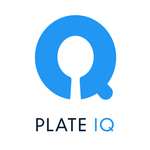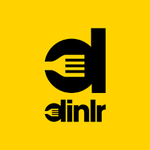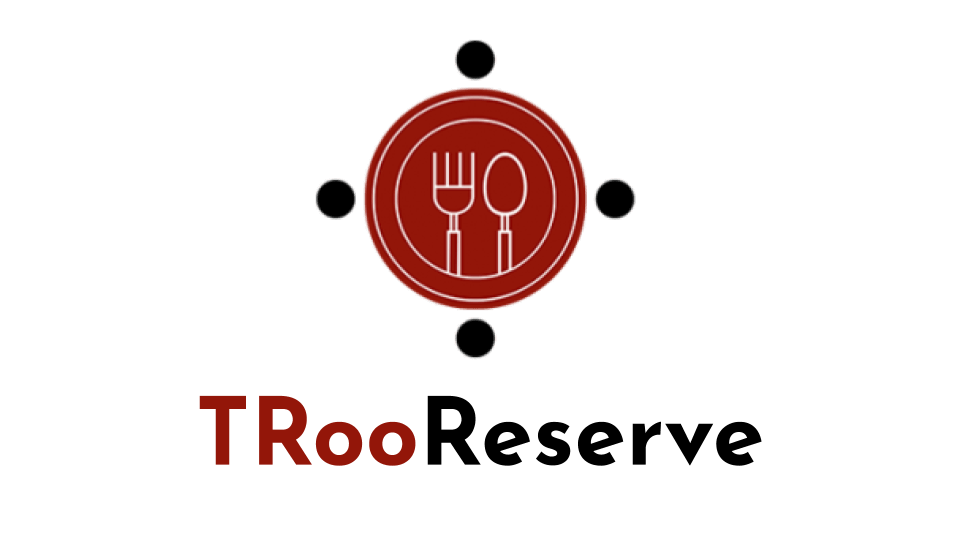Description

Bar Beverage Control

GENIUS
Comprehensive Overview: Bar Beverage Control vs GENIUS
Here's an overview of Bar Beverage Control, GENIUS, and Plate IQ, focusing on their primary functions, target markets, market share and user base, and key differentiating factors:
Bar Beverage Control
a) Primary Functions and Target Markets:
- Primary Functions: Bar Beverage Control systems are designed to streamline the management of bar inventories, monitor pour costs, and reduce beverage waste. They typically provide tools for tracking inventory, controlling portions, establishing pricing, and generating sales reports.
- Target Markets: These systems are aimed at bars, nightclubs, restaurants, and other establishments where beverage service is critical to operations.
b) Market Share and User Base:
- Market Share and User Base: The specific market share and user base for Bar Beverage Control solutions can vary, with several key players in the space catering to a variety of establishments worldwide. Generally, these systems are popular in markets with dense nightlife hospitality sectors.
c) Key Differentiating Factors:
- Integration Capability: Many systems offer seamless integration with Point of Sale (POS) systems, allowing for real-time data on inventory usage and sales.
- Customization: The ability to cater to different types of beverages and drink recipes, as well as customizable reporting, is a significant draw for different establishments.
- Advanced Analytics: Some solutions offer advanced analytics capabilities, helping businesses understand consumer preferences and optimize pricing strategies.
GENIUS
a) Primary Functions and Target Markets:
- Primary Functions: GENIUS is primarily known as a cloud-based payment processing platform that provides businesses with a secure and efficient way to handle transactions. It offers integrated payment solutions with various features such as multi-channel payment processing, fraud prevention, and customer engagement tools.
- Target Markets: The target market for GENIUS includes a wide range of businesses from retail and e-commerce to hospitality sectors that require efficient and secure payment processing capabilities.
b) Market Share and User Base:
- Market Share and User Base: GENIUS has captured a notable share of the market by targeting small to medium-sized enterprises looking for scalable payment solutions. Its user base is diverse, consisting of retailers, service providers, and hospitality businesses.
c) Key Differentiating Factors:
- Security Features: GENIUS places a strong emphasis on security, offering features such as tokenization and encryption to secure transactions.
- Omnichannel Capabilities: Users have the ability to process payments through various channels, whether in-store, online, or via mobile, providing a seamless customer experience.
- Personalization Options: Businesses can have personalized interfaces with loyalty programs and marketing options integrated into the payment process.
Plate IQ
a) Primary Functions and Target Markets:
- Primary Functions: Plate IQ is an accounts payable automation solution designed specifically for the hospitality industry. It digitizes invoice processing, supports expense management, and aids in financial forecasting by automating data entry and allowing for more seamless vendor payments.
- Target Markets: Target markets for Plate IQ include restaurants, hospitality groups, and other food service-related businesses that require efficient financial operations.
b) Market Share and User Base:
- Market Share and User Base: Plate IQ has carved out a strong niche among restaurants and hospitality chains looking to modernize their financial processes. It's favored by multi-location establishments due to its centralized management capabilities.
c) Key Differentiating Factors:
- Industry Focus: Its strong industry focus on food service operations provides tailored features specific to this sector, such as GL coding and vendor management specific to restaurant operations.
- Time-Saving Automation: The ability to automate the entire accounts payable process significantly cuts down on manual entry and reduces administrative burdens.
- Integration with Hospitality Software: Plate IQ often integrates with existing hospitality management systems, improving overall operational efficiency.
Conclusion
While Bar Beverage Control, GENIUS, and Plate IQ serve different aspects of the hospitality and retail sectors, they each have a specialized focus that caters to the specific needs of their respective markets. Their differentiation lies mainly in their function, industry focus, and integration capabilities, making them leaders in their specialized niches.
Contact Info

Year founded :
Not Available
+1 785-820-9926
Not Available
United States
Not Available

Year founded :
Not Available
Not Available
Not Available
Egypt
Not Available
Feature Similarity Breakdown: Bar Beverage Control, GENIUS
To provide a feature similarity breakdown for Bar Beverage Control, GENIUS, and Plate IQ, the assessment must touch on the core offerings, user interface design, and any distinct features of each product. Below is an overview based on common patterns in such software solutions up to my knowledge cutoff in October 2023:
a) Core Features in Common:
-
Inventory Management:
- All three systems likely offer capabilities for tracking inventory levels, optimizing stock, and minimizing waste. This includes real-time updates and alerts for low stock levels.
-
Cost Tracking and Analysis:
- Each product probably includes tools for monitoring expenses related to beverages and possibly broader food items, helping establishments manage costs effectively.
-
Order Management:
- Streamlined processes for ordering supplies and ingredients, which may integrate with vendor systems to automate purchasing.
-
Analytics and Reporting:
- Comprehensive reporting tools to analyze sales, costs, and inventory turnover. This aids decision-making by identifying trends and performance metrics.
-
Integration Capabilities:
- Likely includes compatibility with existing systems such as POS (Point of Sale) software, accounting, and other management software.
b) Comparison of User Interfaces:
-
Bar Beverage Control:
- Typically, systems tailored to specific verticals like beverage control focus on simplicity. User interfaces are often intuitive, with quick-access dashboards for inventory levels and cost analytics.
-
GENIUS:
- Depending on the exact nature of GENIUS you are referring to (as there are several platforms by this name across industries), it could vary widely. Generally, such platforms might prioritize advanced data visualization and offer customizable dashboards.
-
Plate IQ:
- Known for its emphasis on invoice processing and accounts payable, Plate IQ likely features a more accounting-centric UI. The interface would focus on streamlining document management while providing quick access to analytics tools.
c) Unique Features Setting Them Apart:
-
Bar Beverage Control:
- Specific features tailored for liquor and beverage monitoring may include pour tracking and reconciliation with sales data to detect shrinkage or theft more effectively.
-
GENIUS:
- Without detailed context, it’s hard to pinpoint unique features, but often GENIUS platforms include AI-driven analytics and predictive tools that might not be present in more specialized solutions.
-
Plate IQ:
- Unique to Plate IQ often is its focus on automating invoice processing. Features like OCR (Optical Character Recognition) for scanning documents and linking invoices directly into accounting systems stand out.
Each system will be tailored to slightly different use cases and user preferences, influencing feature sets and design focuses. The choice between them will depend largely on whether the priority is tight beverage control (Bar Beverage Control), broad analytics/application of AI (GENIUS), or streamlined invoice and accounting processes (Plate IQ).
Features

Not Available

Not Available
Best Fit Use Cases: Bar Beverage Control, GENIUS
Certainly! Below are the best-fit use cases for Bar Beverage Control, GENIUS, and Plate IQ, including considerations for their applicable business types, scenarios, and how they cater to different industry verticals or company sizes:
a) Bar Beverage Control
Best Fit Use Cases:
- Types of Businesses/Projects:
- Bars and Nightclubs: Ideal for establishments that primarily serve alcohol and need precise inventory management.
- Restaurants with Extensive Bar Service: Suitable for sit-down restaurants with a significant portion of revenue from beverage sales.
- Key Scenarios:
- Inventory Accuracy Needs: When a business needs to minimize waste and theft through accurate beverage tracking.
- Cost Control: For establishments focused on controlling pour costs and maximizing profit margins from their bar service.
- Compliance: Businesses needing to ensure compliance with regulations regarding alcohol inventory and reporting.
Industry Vertical/Company Size:
- Primarily targets small to mid-sized bars and restaurant establishments where beverage sales constitute a significant revenue stream. Larger chains might use it as part of broader restaurant management systems.
b) GENIUS
Best Fit Use Cases:
- Types of Businesses/Projects:
- Retail Operations: Effective for retail companies that require advanced business intelligence tools to analyze customer behavior and sales trends.
- Marketing Firms: Useful for agencies that need analytics to design better marketing strategies.
- Key Scenarios:
- Data-Driven Decision Making: Scenarios where businesses need actionable insights from large sets of customer and sales data.
- Performance Optimization: Companies looking to optimize marketing strategies based on consumer data and analytics.
- Personalized Marketing: Tailoring personalized campaigns or promotions through detailed insights and consumer behavior analysis.
Industry Vertical/Company Size:
- Suitable for medium to large businesses that involve significant customer data and analytics. Industries include retail, e-commerce, and digital marketing firms that emphasize business intelligence solutions.
c) Plate IQ
Best Fit Use Cases:
- Types of Businesses/Projects:
- Restaurants and Food Services: Especially those that handle large volumes of invoices from multiple vendors.
- Catering Companies: Businesses that regularly deal with complex ingredient procurement.
- Key Scenarios:
- Invoice Management: When businesses need to automate accounts payable, resolve discrepancies, and better manage vendor relationships.
- Cost Analysis: Companies looking to gain insights into spending trends to optimize budget and cost efficiencies.
- Streamlining Operations: Simplifying back-office operations and digitizing invoicing to reduce paper management.
Industry Vertical/Company Size:
- Primarily designed for small to medium-sized restaurants and food service companies, although scalable for larger enterprises seeking process efficiency in accounts payable.
Industry and Company Size Differentiation
- Bar Beverage Control is niche-focused on the hospitality sector, specifically alcohol-serving venues, and generally serves small to mid-sized businesses.
- GENIUS offers broad analytics capabilities suitable for larger enterprises across multiple industries, focusing on data-driven insights and marketing enhancement.
- Plate IQ serves the restaurant and catering verticals and offers scalability, making it especially valuable for businesses looking to streamline finance and operations at any size.
In conclusion, the choice among these products depends significantly on the specific needs of an establishment with a focus on beverage inventory, data analytics, or financial process optimization. Each product addresses distinct operational challenges across various business types and sizes.
Pricing

Pricing Not Available

Pricing Not Available
Metrics History
Metrics History
Comparing undefined across companies
Conclusion & Final Verdict: Bar Beverage Control vs GENIUS
When evaluating Bar Beverage Control, GENIUS, and Plate IQ, it's essential to understand their respective offerings and align them with your business needs. Each product excels in different areas, making it crucial to prioritize your specific requirements.
Conclusion and Final Verdict:
Best Overall Value:
Considering all factors, Plate IQ offers the best overall value for businesses focused on comprehensive back-office automation, particularly in the realm of accounts payable and invoice management. Its advanced features, ease of integration, and extensive automation capabilities provide significant time and cost savings.
Pros and Cons:
-
Bar Beverage Control:
- Pros:
- Specializes in inventory management for bars and beverage-focused establishments, offering precise monitoring and restocking solutions.
- Helps reduce waste and optimize stock levels, leading to potential cost savings.
- Cons:
- Limited to bar and beverage inventory, which may not be suitable for broader restaurant or hospitality operations.
- May require integration with other systems for comprehensive operational management.
- Pros:
-
GENIUS:
- Pros:
- Robust point-of-sale (POS) system with strong analytical capabilities.
- Offers a user-friendly interface with customizable features tailored to retail and restaurant environments.
- Cons:
- Primarily a POS system; additional functionalities may require separate integrations.
- Can become costly with add-ons and extra features, potentially increasing operational expenses.
- Pros:
-
Plate IQ:
- Pros:
- Comprehensive AP automation solution, streamlining invoice processing and payments.
- Strong integration capabilities with existing accounting systems, reducing manual data entry and errors.
- Cons:
- Primarily focused on financial management, offering less functionality for direct inventory or sales operations.
- Some businesses might find initial setup and training demanding.
- Pros:
Recommendations:
-
For Beverage-Centric Operations: If your primary focus is managing bar inventory efficiently, Bar Beverage Control is a suitable choice. Its specialization in monitoring and maintaining beverage stock can optimize operations and minimize waste.
-
For Retail and Restaurant Environments Seeking POS Solutions: Consider GENIUS if you need a robust POS system with advanced analytical tools and a user-friendly interface. It's a solid option for businesses looking for customizable POS solutions with a focus on service and retail operations.
-
For Comprehensive Financial Management: Plate IQ is recommended for businesses that require a strong focus on financial operations, particularly accounts payable and invoice management. It offers significant value for businesses aiming to streamline and automate back-office processes.
Ultimately, the best choice depends on your specific operational needs. Evaluate each option based on the core functionalities you require and consider how each system aligns with your current processes and future growth plans.
Add to compare
Add similar companies




